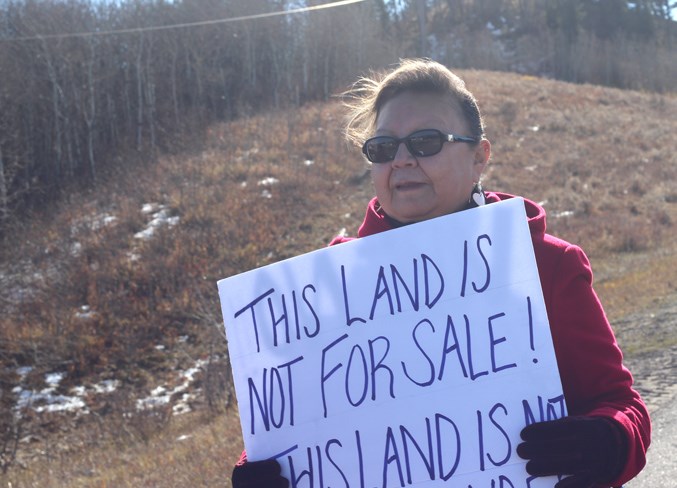Three thousand hectares of land won't be converted into commercialized space on the Stoney Nakoda First Nation reserve lands – at least for now. For the second time this year, the First Nation community rejected a referendum, which would have seen multiple plots of land designated for businesses and open to Nation or non-Nation companies. The Oct. 18 vote saw 675 votes against the designation, 511 for and 19 spoiled ballots. More than 1,200 of the 3,233 eligible voters turned out. The land designation has been a divisive and persistent debate within the Nation with those on one side contending the land – and Nation – should “modernize” while some of those against believe the lands should be kept natural, as they traditionally were. The property up for designation sits on seven sections of land throughout the Nation’s three reserves (Eden Valley, Big Horn and Morley) and represents seven per cent of the reserve lands owned by the Nation. The referendum was first introduced earlier this year but was rejected in a February vote which also saw a near split down the middle; 654 voting no and 558 voting yes. Of the total no votes in February, 610 came from Morley residents. Results of the first vote showed those living in Eden Valley and Big Horn were mostly for the designation but their population and voting numbers were too small to have a sway. Many vocal residents at the time of the first vote expressed concerns over the enormity of the land parcels. They said they would rather have several votes for each section of land rather than having all the parcels bundled into one decision. Jordie Mark, a Chiniki councillor and spokesperson for the band, said the reason for rolling the lands into one vote rather than several was due to the complexity and cost of having multiple votes. Mark told The Cochrane Eagle in an earlier interview that if the vote passed, the Chiniki band would follow through with its solar project in partnership with Trico Homes, which is expected to generate 40 Mega Watts of energy. An application for the project's first phase of construction of the solar power generation facility (25MW) was submitted back in March 2018. Last week, demonstrators walked from Chiniki Gas Bar (off of Highway 1) to the Stoney administration building in Morley townsite to protest the land referendum. In a written statement, Stoney Nakoda First Nation said it would respect the outcome of the vote but added it still has a responsibility to ensure the economic success of the Nation. The goal of the designation, according to the statement was t o combat falling revenue from oil and gas due to changes in the market and work toward greater diversity, which included ideas such as renewable energy, possible partnership in the City of Calgary's Olympic bid and tourism. The written statement goes onto to state the Nation was also cognizant of the traditional value of the land and that any economic development would have been done with membership input.




